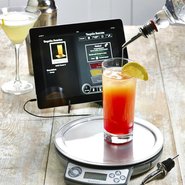Consumers who own smart home devices have quickly embraced voice recognition technology to enhance mobile applications designed to control these devices, driving further interest in the segment, according to new research from The NPD Group Connected Intelligence.
The opportunities for devices and technologies to gain share in the smart home market are growing, with 64 percent of smart home product owners using a smartphone to control or monitor their home automation devices, per NPD Group’s Connected Home Automation Report. Additionally, 73 percent of smart home owners already use voice commands, with 61 percent of these interested in being able to control more products in their homes using voice recognition.
“While the target audience for the category [smart home] remains early adopters, sales are growing rapidly, up 41 percent in 2015 versus 2014,” said John Buffone, executive director at
The NPD Group’s Connected Intelligence.
“The ubiquity of smartphones is, in part, enabling growth as consumers prefer to control their smart home with their phone,” he said. “As voice control becomes more conversational it increases the utility of smart home apps and devices resulting in simplifying consumer’s interaction and further bolstering interest.
“[The most surprising finding was] the sheer volume of consumers already engaged and using voice commands on their devices.”
The automated home
Home automation sales were up 41 percent year-over-year in 2015 and the trend is expected to continue in 2016, according to the report.
This number includes thermostats as well as a broad range of smart capabilities across technologies such as power, sensors, lighting, security/monitoring, locks, and kits.
In the past three months, 64 percent of consumers used smartphones to control or monitor their smart home devices, more than used either desktop or tablets.
Smartphones are the preferred device for smart home control because so many home automation products have an app.
Going forward, NPD Group expects voice recognition and voice control to begin to play more prominent role in the further development of the smart home.
Speaking up
The desire for convenience is driving the growing use of voice commands in the smart home market.
As the interest in voice recognition grows, a new group of products showcasing voice controls as a key capability is becoming available, such as Amazon Echo, which leverages voice controls to turn on a Phillips Hue bulb or change the temperature settings on an Ecobee thermostat.
Smart home devices are becoming an important part of mobile marketing.
Earlier this month, The Absolut Company teamed up with The Perfect Company and its smart kitchen appliances, enabling consumers to leverage Bluetooth technology to weigh each ingredient’s pour in real-time and communicate this to a mobile app, ensuring the creation of a perfect drink (
see story).
The availability of smart home technology is also playing a bigger role in the buying and selling of new homes, with real estate companies partnering with smart technology providers (
see story).
“Both smartphone apps and voice control are important,” Mr. Buffone said. “Indeed, voice control offers an opportunity to further enhance smartphone home automation apps.”
";
}
$token = ld16_get_token($post->ID);
$encrypted = ld16_encrypt($encrypted, $token);
print $encrypted;
?>

 Absolut gets in on the burgeoning smart home market
Absolut gets in on the burgeoning smart home market